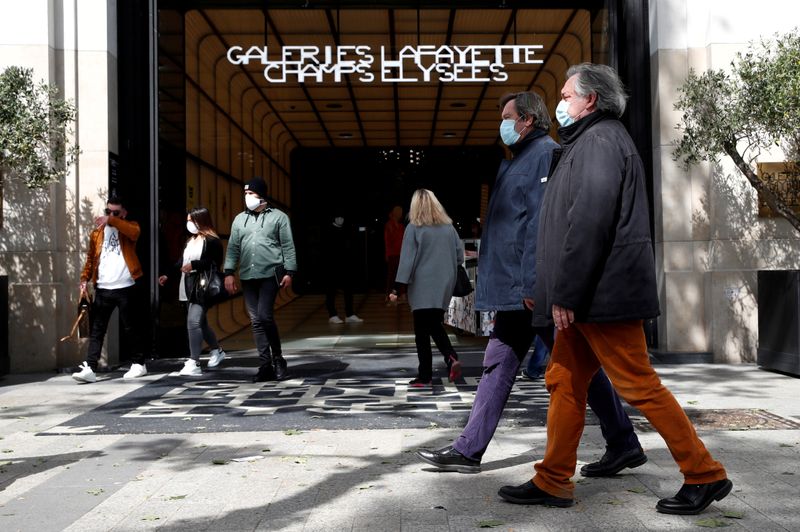PARIS (Reuters) – France will end special government powers brought in to deal with the coronavirus pandemic on July 10 though it will retain the ability to curb gatherings and freedom of movement for four months, the prime minister’s office said.
As coronavirus infections spiralled out of control in March, France passed “state of health emergency” legislation which gave the government the power to restrict civil liberties by decree without parliamentary approval.
With data showing the virus may be fading and the number of people in intensive care continuing to steadily decline since the government lifted its lockdown on May 11, France is now confident it can also end the emergency legislation.
“In view of the positive evolution of the health situation at this stage, the government wishes to put an end to the state of health emergency, which must remain an exceptional case,” Prime Minister Edouard Philippe’s office said.
However, the cabinet will approve on Wednesday a new bill that will allow the government to restrict freedom of movement, make face masks compulsory on public transport, shut businesses and ban gatherings for another four months, his office said.
France, which has the third highest COVID-19 death toll in Europe after the United Kingdom and Italy, has eased many of its strict lockdown measures with shops, holiday resorts and tourist attractions slowly reopening.
Nevertheless, people are still being encouraged to wear face masks when outside and stay at least one metre apart while most employees are continuing to work from home.
France’s coronavirus death toll stands at 29,296, the fifth-highest in the world. On Tuesday, the number of people in intensive care fell below 1,000 for the first time since March 19.
(Reporting by Michel Rose; Editing by David Clarke)

























